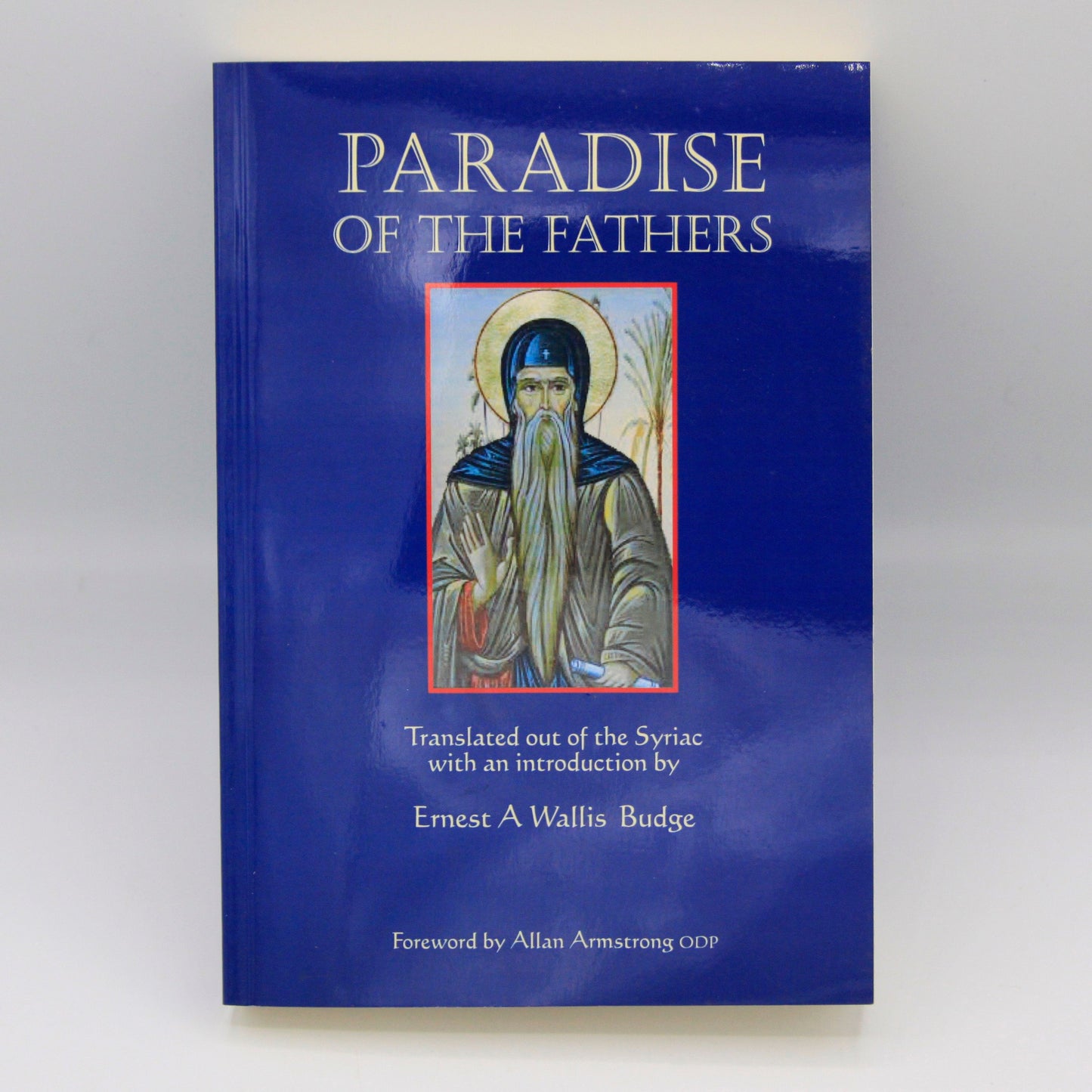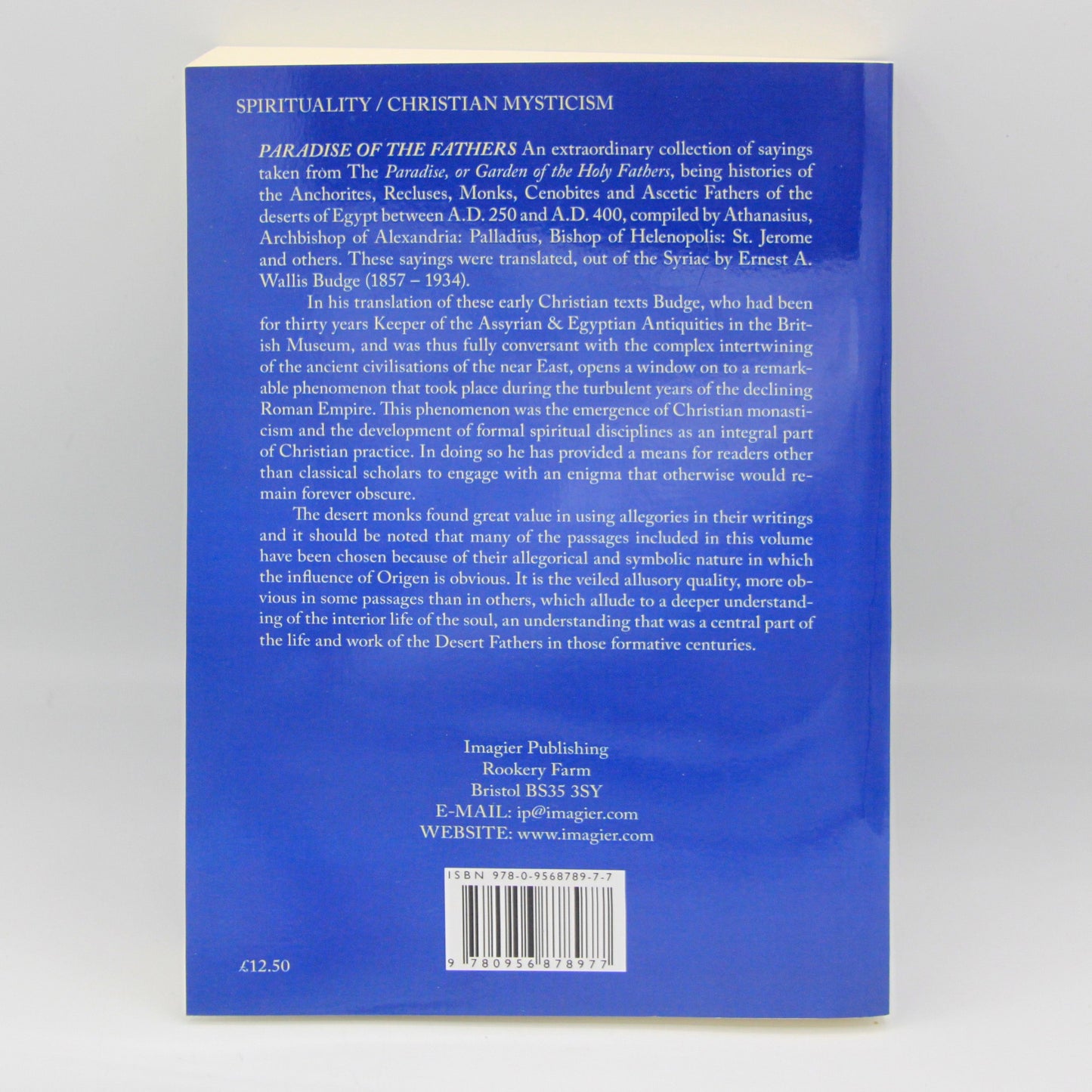My Store
PARADISE OF THE FATHERS by E.A. Wallis Budge
PARADISE OF THE FATHERS by E.A. Wallis Budge
Couldn't load pickup availability
Format: 210mm x 148mm p/b
Extent: 232 + xxvi pages
Artwork 3 x b/w illustrations
PARADISE OF THE FATHERS An extraordinary collection of sayings from The Paradise, or Garden of the Holy Fathers, being histories of the Anchorites, Recluses, Monks, Cenobites and Ascetic Fathers of the deserts of Egypt between A.D. 250 and A.D. 400, compiled by Athanasius, Archbishop of Alexandria: Palladius, Bishop of Helenopolis: St. Jerome and others, translated, by Ernest A. Wallis Budge.
In Paradise of the Fathers a translation of early Christian texts, E.A. Wallis Budge, who had been for thirty years Keeper of the Assyrian & Egyptian Antiquities in the British Museum, and was thus fully conversant with the complex intertwining of the ancient civilisations of the near East, opens a window on to a remarkable phenomenon that took place during the turbulent years of the declining Roman Empire.
This phenomenon was the emergence of Christian monasticism and the development of formal spiritual disciplines as an integral part of Christian practice. Whatever the reasons and for their existence, and there are many given, he describes in Paradise of the Fathers a means for readers other than classical scholars to engage with an enigma that otherwise would remain forever obscure.
The embodied wisdom, often veiled in allegory and metaphor, has inspired mystics for centuries. The desert monks found great value in using allegories in their writings and it should be noted that many of the passages included in this volume have been chosen because of their allegorical and symbolic nature in which the influence of Origen is obvious. It is the veiled allusions, more obvious in some passages than in others, which allude to a deeper understanding of the interior life of the soul, an understanding that was a central part of the life and work of the Desert Fathers in those formative centuries.
Share



